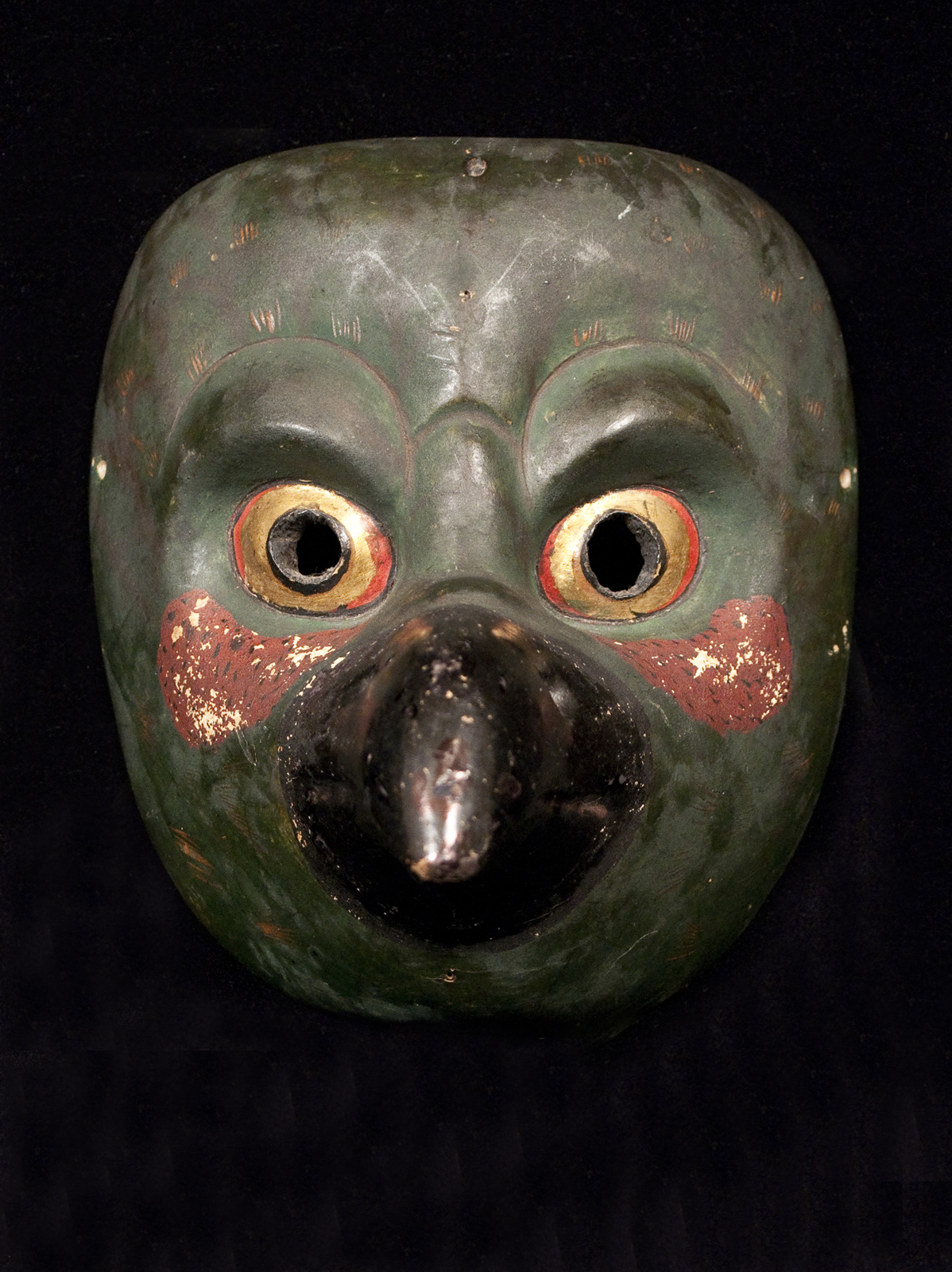Karasu: The Enigmatic Shadow Bird Of Japanese Mythology
Karasu: The Enigmatic Shadow Bird Of Japanese Mythology
Karasu, the enigmatic shadow bird of Japanese mythology, is a symbol of both fortune and misfortune. It is believed to be a harbinger of death and misfortune, but it is also revered as a guardian spirit and a messenger of the gods.
Editor's Notes: "Karasu: The Enigmatic Shadow Bird Of Japanese Mythology" have published today date is an important topic to explore because it gives us a glimpse into the rich and complex mythology of Japan. Karasu is a fascinating creature that has been featured in stories and legends for centuries. By learning more about Karasu, we can better understand Japanese culture and its beliefs about the natural world.
In this guide, we will explore the history, symbolism, and cultural significance of Karasu. We will also provide some tips on how to incorporate Karasu into your own creative work.
Key Differences
| Feature | Karasu | Other Birds |
|---|---|---|
| Appearance | Black feathers, red eyes | Varies |
| Symbolism | Death, misfortune, guardian spirit, messenger of the gods | Varies |
| Cultural significance | Featured in Japanese mythology, art, and literature | Varies |

Shadow of the Nature, Black Bird Shadow on White Background Stock - Source www.dreamstime.com
Main Article Topics
FAQ
Uncover the enigma of Karasu, the enigmatic shadow bird of Japanese mythology, and delve into frequently asked questions.

Karasu Samurai on Twitter: "Boruto ep 184 gotta say I was waiting for - Source twitter.com
Question 1: What is the significance of Karasu in Japanese culture?
Karasu holds a prominent position as a divine messenger in Japanese mythology, often associated with the deities Amaterasu, the sun goddess, and Susanoo, the storm god. It is believed to possess supernatural powers, including the ability to communicate with the divine.
Question 2: How is Karasu depicted in folklore?
Legends portray Karasu as a three-legged crow with dark, glossy plumage. It is said to perch atop the sacred tree known as Yggdrasil, from where it watches over the nine realms of Norse mythology and reports back to the gods.
Question 3: What is the symbolic meaning of Karasu?
Karasu symbolizes wisdom, longevity, and protection. Its dark color and nocturnal habits connect it to the underworld and the mysteries of the afterlife, making it a revered guardian and guide.
Question 4: Are there any taboos associated with Karasu?
In some regions of Japan, Karasu is considered a harbinger of misfortune. It is believed that seeing a single Karasu is a sign of bad luck, while three Karasu symbolize a positive omen.
Question 5: What is the historical significance of Karasu?
Historical records indicate the reverence for Karasu since the Nara period (710-794 AD). It was a symbol of power for the Yamato clan, whose crest depicted a three-legged crow. The bird also appears on ancient coins and artwork.
Question 6: How does Karasu continue to influence modern-day culture?
The legacy of Karasu lives on in Japanese art, literature, and popular culture. It remains a powerful symbol of ancient beliefs and cultural heritage, inspiring countless artistic expressions and captivating narratives.
In conclusion, Karasu is a multifaceted figure in Japanese mythology, embodying wisdom, protection, and the mysteries of the underworld. Its enigmatic nature continues to captivate and inspire, leaving an enduring mark on the nation's cultural fabric.
Proceed to the next section to explore further fascinating aspects of Japanese mythology.
Tips for Studying Karasu
Follow these tips to learn more about Karasu, the enigmatic shadow bird of Japanese mythology:
Tip 1: Read “Karasu: The Enigmatic Shadow Bird Of Japanese Mythology”
This article provides an in-depth overview of Karasu's origins, symbolism, and significance in Japanese culture.
Tip 2: Explore Ancient Japanese Literature
Karasu appears in numerous ancient Japanese texts, including the Kojiki and Nihon Shoki. Studying these works can provide valuable insights into Karasu's role in Japanese mythology.
Tip 3: Visit Shinto Shrines Dedicated to Karasu
Several Shinto shrines in Japan are dedicated to Karasu. Visiting these shrines can offer a deeper understanding of Karasu's connection to Japanese spirituality.
Tip 4: Study Karasu's Depictions in Art
Karasu has been a popular subject in Japanese art for centuries. Analyzing paintings, sculptures, and other artistic representations can reveal different perspectives on Karasu's symbolism.
Tip 5: Join Online Forums and Discussion Groups
Engaging in online discussions with experts and enthusiasts can provide valuable insights and perspectives on Karasu's mythology and cultural significance.
Summary:
By following these tips, you can embark on an enriching journey to understand the enigmatic and fascinating Karasu.
Karasu: The Enigmatic Shadow Bird Of Japanese Mythology
Karasu, the enigmatic shadow bird of Japanese mythology, is a symbol of both good and evil, a divine messenger and a harbinger of death. Its multifaceted nature has captivated the Japanese imagination for centuries.
- Divine Messenger: Karasu serves as a divine messenger, carrying messages between the gods and the mortal world.
- Symbol of the Sun: In some legends, Karasu is associated with the sun, representing its power and vitality.
- Harbinger of Death: Karasu is often associated with death and misfortune, its presence sometimes foretelling the passing of a loved one.
- Protector of Shrines: Karasu is revered as a protector of Shinto shrines, often depicted perched on torii gates.
- Symbol of Transformation: Karasu represents the cycle of life and death, its black feathers symbolizing the transformative power of change.
- Trickster Figure: In certain tales, Karasu takes on a mischievous and trickster-like role, playing pranks and confusing humans.
Karasu's enigmatic nature reflects the complex and multifaceted beliefs of Japanese mythology. As a divine messenger, it symbolizes the connection between the heavens and the earth. As a protector of shrines, it represents the sacredness of religious spaces. As a harbinger of death, it serves as a reminder of the transience of life. Karasu's trickster-like qualities add an element of humor and unpredictability to its mythology. Ultimately, this enigmatic shadow bird embodies the duality and ambiguity that is so prevalent in Japanese folklore.

Premium Photo | Mystical Gaze of the Shadow Hunter An Enigmatic - Source www.freepik.com

Raven Mask, Crow Mask, Oni Mask, Japanese Demon Mask, Beak Mask, Oni - Source www.pinterest.com
Karasu: The Enigmatic Shadow Bird Of Japanese Mythology
Karasu, the enigmatic shadow bird, holds a profound connection to Japanese mythology. As both a messenger of the gods and a harbinger of misfortune, it symbolizes the duality of existence. Its presence often portends significant events, shaping the course of countless tales.

Asian Tribal Art - Karasu Tengu Mask, Japan - Source zenakruzick.com
Karasu's role as a messenger stems from its association with the sun deity Amaterasu. Legend has it that her grandson Ninigi descended to earth on the back of a karasu, carrying with him the Three Sacred Treasures. This act established the divine lineage of Japanese emperors and cemented the karasu's status as a symbol of imperial power.
However, the karasu's association with the underworld and spirits also casts it as an omen of misfortune. Its black plumage, nocturnal habits, and eerie calls evoke a sense of mystery and trepidation. In folklore, karasu are often depicted as spirits of the deceased, guiding the souls of the dead to the afterlife.
This duality extends beyond the physical realm. Karasu represents both the visible and invisible forces that shape existence. Its presence reminds us of the fragility of life and the interconnectedness of all things. By acknowledging both its light and shadow aspects, we gain a deeper understanding of our own nature and the complexities of the world around us.
Through its multifaceted symbolism, Karasu serves as a reminder of the delicate balance between good and evil, creation and destruction. It invites us to embrace both the joys and sorrows of life, and to seek wisdom in the enigmatic shadows that surround us.
Manchester City: A Dominant Force In The Premier League, Dan Roushar | Helping Businesses Elevate Their Online Presence, Tama Tonga: NJPW's Charismatic King Of Darkness, Gold Medalist Nick Goepper: A Legacy Of Freestyle Skiing Excellence, Tom Brady's Unmatched Legacy: A Journey Through 7 Super Bowl Victories, Experience Excitement And Luxury At Gulfstream Park: The Premier Racing Destination, Travis Kelce Jersey Number: An In-Depth Exploration, Vistra Corp: Diversified Energy Leader With Growth Potential, Andy Reid: The Super Bowl-Winning Coach's Legacy And Coaching Philosophy, Jordan Spieth: Golfing Prodigy And Master Of The Game,